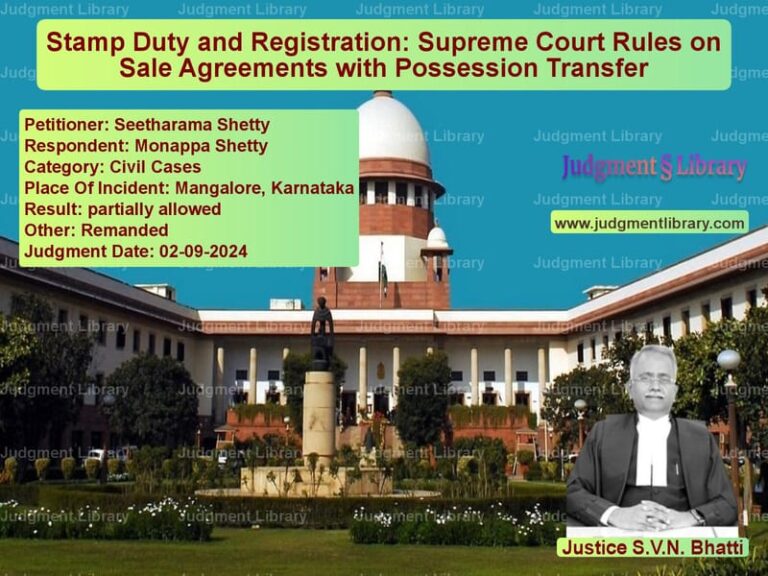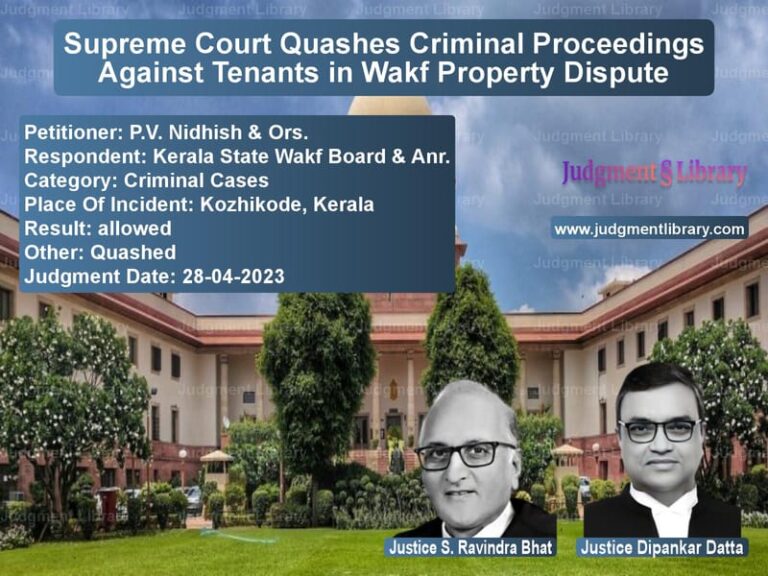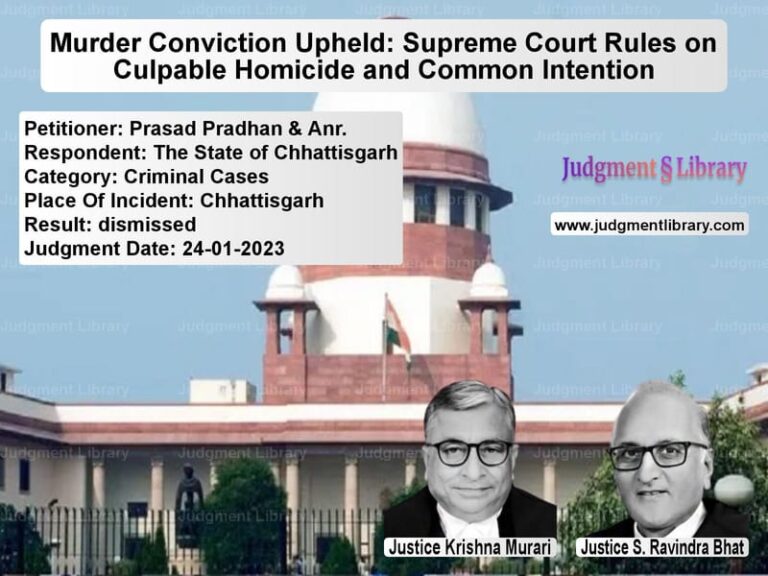Supreme Court Resolves Dispute Over Temple-Owned Shops in Tamil Nadu
The Supreme Court of India has disposed of a long-standing legal dispute concerning tenants occupying shops owned by the Arulmighu Dhandayuthapani Swamy Temple, Palani. The case involved tenants who had remained in possession of the shops despite the expiry of their lease periods, leading to their classification as encroachers under the Hindu Religious and Charitable Endowments (HR&CE) Act, 1959.
Background of the Case
The dispute originated when tenants, whose leases had expired, refused to vacate the premises. The Tamil Nadu Government, acting on behalf of the temple administration, initiated eviction proceedings under Section 78 of the HR&CE Act. The matter reached the High Court, which upheld the eviction orders and directed the tenants to hand over possession of the shops.
Several tenants challenged this decision by filing Special Leave Petitions before the Supreme Court. The Court, while initially hearing the case on January 8, 2024, encouraged the parties to seek an amicable resolution. Subsequently, the matter was resolved on mutually agreeable terms.
Arguments by the Petitioners (Tenants)
- The tenants had been in possession of the shops for several years and had invested in improving the premises.
- They argued that they were not encroachers but legitimate occupants whose leases had merely expired.
- Many tenants claimed that they were willing to pay revised rent but sought protection from abrupt eviction.
- They requested alternative allotments or a fair opportunity to bid for the shops in case of redevelopment.
Arguments by the Respondent (Tamil Nadu Government)
- The temple administration required the premises for redevelopment to improve facilities for pilgrims.
- Allowing tenants to remain indefinitely would violate the temple’s rights under the HR&CE Act.
- The government emphasized that the tenants had been given ample opportunities to vacate but had failed to comply.
- Encroachments hindered the temple’s development plans and created administrative difficulties.
Supreme Court’s Observations and Judgment
1. Legality of Eviction Orders
The Court upheld the eviction orders, affirming that the tenants had no legal right to continue occupying the premises after the expiry of their leases. It ruled:
“The order of ejectment passed by the authorities under the provisions of the Act stands affirmed.”
2. Special Consideration for 19 Tenants
The Court found that 19 tenants had not cleared arrears of rent despite repeated opportunities. It permitted the temple authorities to initiate immediate eviction proceedings against them.
3. Conditional Relief for 51 Tenants
The remaining 51 tenants were allowed to stay in the premises for an additional six months (until July 31, 2024), subject to the following conditions:
- They must pay rent at the rates revised in 2015 (instead of 2018) and clear all arrears within four months.
- No structural alterations or unauthorized construction would be permitted.
- They must vacate voluntarily by the agreed deadline.
- If redevelopment occurs, they will receive preferential treatment in allotment, provided they participate in the bidding process.
4. Rights of the Landlord
The judgment clarified that the temple authorities retained full rights over the property and could proceed with redevelopment as per their plans. It warned tenants against creating encumbrances or obstructing development work.
5. Closure of Litigation
All pending legal disputes concerning the shops were deemed closed, and the tenants were required to file undertakings agreeing to the terms within three weeks.
Implications of the Judgment
1. Protection of Temple-Owned Properties
The ruling reinforces the rights of temple administrations to reclaim their properties for religious and developmental purposes.
2. Balanced Approach to Tenant Rights
By granting temporary relief to some tenants while affirming eviction orders, the Court ensured a fair balance between property rights and the interests of long-term occupants.
3. Precedent for Similar Disputes
This judgment sets a precedent for cases involving expired leases on temple or trust properties, affirming that unauthorized occupation cannot be indefinitely extended.
4. Encouragement of Amicable Settlements
The Court’s intervention in facilitating a negotiated resolution demonstrates the judiciary’s preference for settlements over prolonged litigation.
Conclusion
The Supreme Court’s decision marks a significant victory for the administration of religious properties in India. By upholding the eviction orders while providing temporary relief to some tenants, the judgment ensures that temple lands can be used for the benefit of devotees without being indefinitely occupied by former tenants. This case serves as a guiding precedent for future disputes involving temple-managed properties and encroachments.
Petitioner Name: K. Balasubramani & Others.Respondent Name: The Tamil Nadu Government & Others.Judgment By: Justice J.K. Maheshwari, Justice Sanjay Karol.Place Of Incident: Palani, Tamil Nadu.Judgment Date: 23-02-2024.
Don’t miss out on the full details! Download the complete judgment in PDF format below and gain valuable insights instantly!
Download Judgment: k.-balasubramani-&-o-vs-the-tamil-nadu-gover-supreme-court-of-india-judgment-dated-23-02-2024.pdf
Directly Download Judgment: Directly download this Judgment
See all petitions in Property Disputes
See all petitions in Specific Performance
See all petitions in Judgment by J.K. Maheshwari
See all petitions in Judgment by Sanjay Karol
See all petitions in partially allowed
See all petitions in settled
See all petitions in supreme court of India judgments February 2024
See all petitions in 2024 judgments
See all posts in Civil Cases Category
See all allowed petitions in Civil Cases Category
See all Dismissed petitions in Civil Cases Category
See all partially allowed petitions in Civil Cases Category







